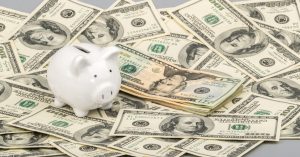Wealth Inequality and Economic Impact: A Rising Concern
Wealth inequality in the U.S. has grown at an alarming rate over recent decades, posing a significant challenge to the otherwise strong U.S. economy. Janet Yellen, former Chair of the Federal Reserve, highlighted this growing issue in a recent speech, warning that the widening wealth gap is not only a social problem but a fundamental economic threat.
Yellen emphasized that wealth inequality has meant that, even during periods of economic growth, many Americans feel left behind. Those benefiting the most from this growth are high-income earners and those with advanced education, while a significant portion of the population struggles to get by.
Why Wealth Inequality Threatens Economic Stability
Despite efforts by the Federal Reserve to keep the economy on track, wealth inequality undermines the broad benefits of economic growth. Yellen pointed out that many American workers aren’t seeing real wage increases, and the gains from economic expansion aren’t being shared equally. The impact is felt most strongly by workers without a post-high school education, who are often trapped in low-wage jobs with limited opportunities for advancement.
“It’s a serious economic problem and social problem because it means the gains of our economic system are not being widely shared,” Yellen said. “It leaves people feeling like the economy is not working for them.”

Tariff Wars: A Compounding Issue
Alongside wealth inequality, the U.S.-China trade war has also added pressure to the economy. Yellen mentioned that tariffs imposed on Chinese goods, meant to protect U.S. industries, have in fact backfired. “These tariffs are taxes on American consumers and businesses,” she remarked, highlighting that the cost of doing business has increased due to higher prices on imports.
The tariffs have also disrupted supply chains, leaving U.S. businesses in uncertain positions. “It’s making it more difficult and more expensive to do business, and consumers are seeing higher prices,” Yellen added.
The Role of Monetary Policy
The Federal Reserve’s policies have played a double-edged role in this scenario. While historically low interest rates have helped spur investment and consumer spending, they’ve also penalized savers. Yellen acknowledged receiving numerous complaints during her time as Fed Chair from individuals who found it difficult to grow their retirement savings. “Savers are getting penalized. It’s true,” she said.
Although the Fed’s primary mandate is to keep inflation in check and maintain full employment, its policies have contributed to wealth inequality by disproportionately benefiting asset owners, such as stockholders, while doing little for average workers.
Wealth Inequality in the U.S.: A Long-Term Trend
Despite a strong economy, wealth inequality has persisted and even worsened over time, contributing to social unrest and economic uncertainty.
Impact of Wealth Inequality on Future Economic Growth
Without addressing wealth inequality, economic growth may stagnate as more people feel left out of the benefits of a growing economy. A shrinking middle class leads to lower consumer spending and decreased economic mobility, both of which are essential drivers of long-term growth.
Conclusion:
Wealth inequality is not just a social issue; it’s a pressing economic challenge that threatens long-term stability. As Yellen pointed out, the uneven distribution of wealth has left many Americans struggling, even in times of economic expansion. If not addressed, wealth inequality could continue to fuel discontent and hinder the potential for a truly inclusive economic recovery.